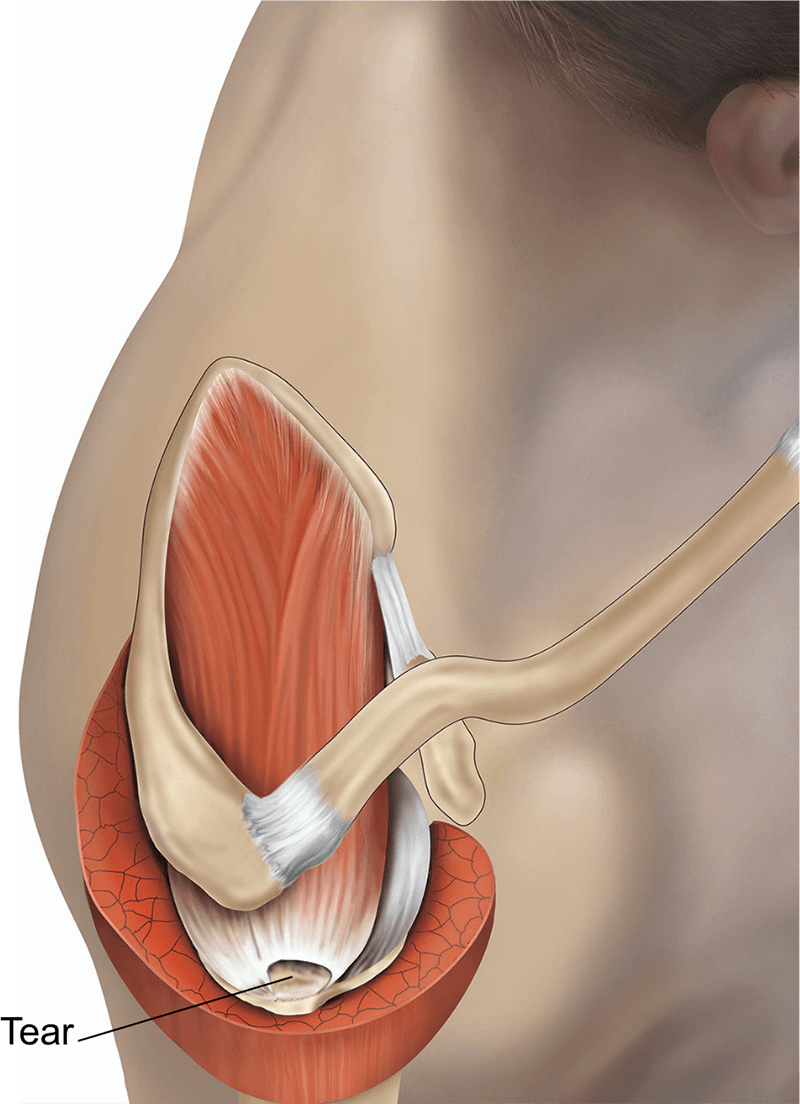What is the rotator cuff?
The rotator cuff is formed from four muscles and tendons that attach your arm to the top of your shoulder blade (acromion). If the rotator cuff becomes weak or tears, you can get pain and weakness.
There are usually 2 types of damage that can happen to the rotator cuff.
- Rotator cuff tear — This is often caused by a fall or lifting something heavy.
- Rotator cuff degeneration — This can be because of age, wear and genetic factors.

What are the benefits of surgery?
You should get less pain and be able to use your shoulder more easily but you may not get back the same strength that you had before you damaged your shoulder.
Are there any alternatives to surgery?
Most people with a rotator cuff tear can get back good function in their shoulder by changing their activities, and with the help of exercises and physiotherapy.
Simple painkillers such as paracetamol and anti-inflammatory painkillers such as ibuprofen can also help.
A steroid and local-anaesthetic injection into your shoulder can sometimes reduce pain for several months but may cause side effects if repeated too often. You should not have a steroid injection within 2 weeks of having a vaccination because it can prevent you from making enough antibodies.
What does the operation involve?
The operation is usually performed under a general anaesthetic but various anaesthetic techniques are possible.
The operation usually takes 45 to 90 minutes.
Keyhole surgery
Your surgeon will make three or four small cuts at the front and back of your shoulder and on the side of your upper arm.
They will insert surgical instruments through the cuts along with a telescope so they can see inside your shoulder and perform the operation.
Your surgeon will use the instruments to remove any thickened tissue, release any tight tissue and to shave off some bone so there is more room for your rotator cuff to move.
Open surgery
Your surgeon may use open surgery to repair any tears. They will make a single cut on the front of your shoulder. They will repair the rotator cuff using stitches that anchor into the bone.
How can I prepare myself for the operation?
If you smoke, stopping smoking now may reduce your risk of developing complications and will improve your long-term health.
Try to maintain a healthy weight. You have a higher risk of developing complications if you are overweight.
Regular exercise should help to prepare you for the operation, help you to recover and improve your long-term health. Before you start exercising, ask the healthcare team or your GP for advice.
Speak to the healthcare team about any vaccinations you might need to reduce your risk of serious illness while you recover. When you come into hospital, practise hand washing and wear a face covering when asked.
What complications can happen?
Some complications can be serious and can even cause death.
General complications of any operation
- bleeding
- infection of the surgical site (wound)
- allergic reaction to the equipment, materials or medication
- chest infection
Specific complications of this operation
- bleeding into your shoulder
- restricted shoulder movement
- infection in your shoulder
- blood clot (thrombosis) in the axillary vein, which is just under your shoulder joint
- severe pain, stiffness and loss of use of your arm and hand
- damage to nerves around your shoulder
- the rotator cuff tearing again or the tear failing to heal
- ongoing weakness in your shoulder
Consequences of this procedure
- pain
- unsightly scarring of your skin
How soon will I recover?
You should be able to go home the same day.
It can take up to a year to get back enough strength in your shoulder to return to normal activities.
Regular exercise should help you to return to normal activities as soon as possible. Before you start exercising, ask the healthcare team or your GP for advice.
You may not get back the same strength that you had before you damaged your shoulder.

